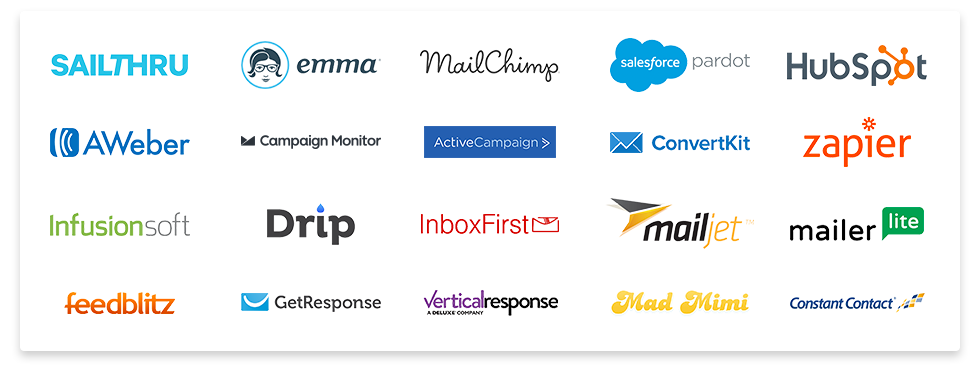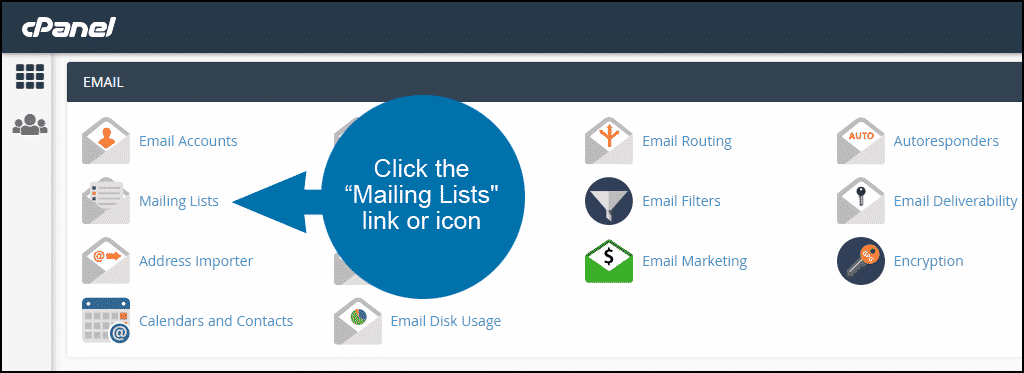20 Excellent Pieces Of Advice For Deciding On Email List Sellers
20 Excellent Pieces Of Advice For Deciding On Email List Sellers
Blog Article
What Factors Should I Take Into Consideration Prior To Purchasing A Family Medicine Email List?
You should consider several factors when purchasing an email list to use for Family Medicine. This will ensure that you receive high-quality data, which is accurate and in compliance with the law, to use for your marketing campaigns. What to consider is 1. Quality and Accuracy of the Data
Source of Data: Make sure the service provider gathers data from trusted and verified sources, for example, medical directories professional associations, licensing boards or opt-in databases. Family medicine practitioners' email addresses should be relevant up-to-date and tailored to the audience you are targeting.
Verification Process: Ask about the providerâs verification process. To remove invalid or inactive emails, the email list is regularly cleaned and regularly updated. Validated emails reduce bounce rates and improve deliverability.
Segmentation Options: Lists should be segmented based upon criteria like geographical area (country or state) and years of experience or size of practice, and areas of special significance (e.g. preventive medical care, pediatrics). Segmentation allows for more specific and individualized outreach, which increases engagement rates.
2. Legal Regulations
Data Privacy Laws - Ensure that the list conforms to the General Data Protection Regulation in Europe, the California Consumer Privacy Act in the U.S.A. and any other applicable privacy laws. For regulatory purposes it is essential to ensure that the email addresses have been legally collected and consented to.
CAN SPAM Act Compliance: When you conduct email marketing campaigns within the U.S.A. be sure to comply with the CAN SPAM Act. This includes providing clear opt-out mechanisms and not using deceptive subject lines or misleading details in your emails.
Opt-In Consent : Check that the email addresses we have collected were acquired through consent. This means that physicians who practice family medicine have consented to receiving marketing messages.
3. Provider Reputation
Reputable Providers - Select a data provider that has an established track record of providing compliant and high-quality data. Find testimonials, customer reviews, as well as case studies, to make sure the service is reliable and reliable.
Transparency: Providers must be transparent about the ways they gather data as well as how often they update their data. This is a red flag if the provider of data cannot provide a clear explanation of their source methods.
Customer Support: Select suppliers that offer a robust assistance to their customers. It is possible that you require assistance with technical issues as well as list segmentation. Also, you need to ensure the list is compliant with rules.
4. Return on investment (ROI) and cost
Pricing Models. The providers offer different pricing models, including pay per contact, flat fee or subscription. Choose a pricing model that corresponds with your budget, but making sure you receive an ROI on your investment.
Refund Policy and Replacement Policy. Reputable companies provide refunds or replacements for inactive or invalid email addresses. Make sure you understand any clauses in the policy prior to purchasing.
Do not solely concentrate on price. While a list with a low cost may seem appealing however, it could result in poor deliverability and large bounce rates. It is better to purchase a premium list that has more effective targeting and more engagement.
5. Ownership and use of data
Single Use vs. Make clear the purpose of the list. Lists that are able to be used for multiple campaigns provide more value. This is particularly important when you're planning to conduct regular outreach.
Exclusive vs. Shared Lists - Determine if your list is exclusive or shared by multiple buyers. Exclusive lists are less likely to create over-saturated audiences and typically result in higher engagement rates.
6. Data Integration and Format
Compatibility with CRM: Ensure you have your email list formatted in a way compatible with your customer relationship management system (CRM) or the email marketing tool you use. (Example, CSV). This ensures smooth integration and user-friendly.
Accessibility: Ensure that your list is well-organized and simple to filter or segment on the factors that are important to your campaign. It will streamline your messaging and your targeting efforts.
7. Ethical Considerations
Relevance of Outreach: Family medicine practitioners are professionals who work full-time So make sure your outreach is relevant to their profession. Beware of sending irrelevant or generic messages, as they could damage your brand's reputation and result in low engagement or spam complaint.
Beware of Spam Methods. Send emails with care. Don't over-email. Sending too many emails or irrelevant offers could result in cancellation of subscriptions, spam reports or even a negative reputation for the sender.
When purchasing an Family Medicine email list, focus on data quality, legal compliance, and reputation of the company to ensure your outreach efforts are effective. Find segmented, verified data that's compliant with privacy laws and is aligned with your target audience. If you invest in a top-quality list and sending relevant messages, you'll boost engagement rates and boost your ROI on marketing. View the top rated family medicine email list for site info.
What Are The Factors I Need To Consider Prior To Purchasing A Urgent Care Email List?
When purchasing an urgent care email list, it's important to consider a range of aspects to make sure the list is reliable, efficient legal, compliant and appropriate to your goals in marketing. These are the most important considerations. Data Quality and Accuracy
The source of the data You must ensure that the provider you choose to use collects the data it needs from trusted sources such as medical association databases professional directories, or healthcare databases. Avoid lists created by scraping data or using untrusted methods, since they may contain incorrect and outdated information.
Verification: Confirm if the email list was frequently kept up to date. A reliable supplier will have a rigorous validation process that removes invalid or out of date email addresses. This helps improve deliverability and reduce bounce rates.
Segmentation and Targeting The list should include options for segmentation like the location (city, province or region), the size of the urgent care facility (e.g. diagnostics, pediatrics), or roles of decision-makers (e.g. medical directors, managers). Targeted list improves the relevance of your outreach and increases engagement rates.
2. Legal Regulations
Data Privacy Laws - Ensure the list conforms to applicable privacy laws for data, such as the General Data Protection Regulation in Europe and the California Consumer Privacy Act in the U.S.A. This implies that email addresses should only be collected after a consent to processing and collection.
CAN-SPAM Act Compliance: In the U.S., your email marketing campaigns must be in compliance with the CAN-SPAM Act. This means you have to include an opt-out option avoid using misleading subject line, and include the physical address of your customer when you send emails. Non-compliance can lead to penalties and damage to your brand's reputation.
Opt-In Consent - Make sure that all recipients of the email addresses on your list have explicitly accepted receiving marketing emails from third party companies. This minimizes the risk of legal concerns.
3. Provider Reputation
A reputable provider: Select an established provider that has a solid track record in delivering high-quality, compliant email lists. You can evaluate a provider's reliability by looking at reviews, testimonials, and cases studies.
Transparency. The service provider must provide information about the source of data and the frequency of updates. If the service provider is unable to provide clear answers about their methods of collecting data, it may indicate poor-quality data.
Customer Support is Important If you require assistance in a technical issue, customization of your list or even compliance, strong customer service is essential. A company that is responsive can to assist you in getting the best value from your list.
4. Return on investment (ROI) and cost
Pricing models Email list providers provide a variety of pricing structures such as flat fee or pay-per contact. Pricing models should be evaluated against your marketing budget, and the ROI goals. Check the cost and quality of a list to the relevant data.
Refund or replacement policy: Reputable suppliers often offer a replacement or refund policy when a significant portion of email addresses are invalid or is not deliverable. Before purchasing, make sure you know the terms of the policy.
Value for money - Instead of choose the cheapest solution, look at lists with accurate data or detailed segmentation. A high-quality database will boost engagement and increase return on investment.
5. Ownership and use of data
Single-Use vs. Multi-Use: Decide whether the list could be used for only one campaign or a variety of campaigns. Lists which allow for multiple uses will provide more value. This is particularly true when you plan to launch ongoing campaigns.
Exclusive vs. Lists shared: Choose whether the list belongs solely to your business or distributed to other buyers. The shared list can cause the recipients becoming tired, as they could receive messages from multiple companies.
6. Data Integration and Format
CRM Compatibility: Ensure your list of email addresses has been delivered to you in a format that is compatible with that is compatible with CRM, for example CSV (Comma Separated Values) or Excel. This will facilitate a seamless integration and allow you to start your campaign swiftly.
User-friendliness: The email list must be easy to manage and segment by specific requirements. An organized list will increase the effectiveness of personalization and targeting.
7. Ethical Questions
Relevance of the information: Urgent-care professionals are often busy, which is why it's essential to provide them with relevant and helpful information. Customize your messages to meet the specific needs of their clients like the medical supplies, equipment or technology for healthcare they require. Unrelated content can damage your brand's reputation and reduce engagement.
Avoid Spam by being aware of the frequency with which you send email. Spam complaints can be brought on by sending excessive emails, or messages that are not required.
The conclusion of the article is:
When you purchase an urgent email list, pay attention to the quality of the data, the legal compliance, and the reputation of the seller. Make sure the list is divided. The data should be regularly updated and it must be in compliance with all privacy regulations. With a well-targeted, high-quality list and delivering content that is relevant, you can increase engagement and improve your return on investment. Have a look at the top rated urgent care email list for website tips.